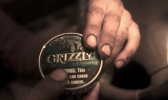Forget Cheers. The Sportsman’s Bar in McGregor, North Dakota really is the place where everyone knows your name. “Gee! Max is here. Imagine that!” shouts Gayleen Grote from behind the bar.
If Grote knows you, she’ll have your drink ready when you walk in. If she likes you, she’ll come around the bar and give you a big hug. “I am a very social butterfly,” she says. “I get to talk to a lot of different people. And meet a lot of people.”
Even by western North Dakota standards, McGregor is a small town. Located on the northern edge of the oil patch — not far from Tioga — McGregor is so small that the U.S. Census Bureau doesn’t even track its population. The roads here are dirt. The bar’s name isn’t displayed outside — there’s just an old Schlitz beer sign above an open door.
Cory Goreringer loves the décor inside the Sportsman’s Bar, which consists of dead caribou and dear heads mounted to the walls. “It’s frickin’ awesome,” he says. “There’s a caribou here and one, two, three, four, five deer that are probably 140, [150] class. And a bunch more behind me that are definitely 140 class.”
Goreringer is a South Dakotan working on a nearby oil rig. He likes drinking here. “We talk a lot about huntin’ and fishin’,” he says. “It’s a good, old hometown bar, really. That’s what it is. That’s what McGregor is. The locals ain’t trying to push me out and I’m an outsider. But there is outsiders they don’t want here. I guarantee you that.”
But since the oil boom, the Cheers-like feel of the Sportsman’s Bar has changed — significantly. Business is up, but so are tough customers. “It’s a part of the job to be friendly and to make them feel welcome and make them want to come back, but there’s a line that you do not cross,” Grote says.
Some guys cross that line — where flirting becomes harassment — and are asked to leave the bar. So far, they always have. Without incident. If only Grote had the same power outside the bar as she does inside. “It used to be one or two vehicles a day going by,” she says. “You knew who they were. They were your neighbors. And they went by at about the same time every day. Now it’s constant trucks, it’s constant pickups. It’s all night, all day. Before if you saw headlights late at night, you assume there was a problem. Now there’s a bustle of activities and people who don’t know how to drive very well and don’t know where they are. It’s a huge change.”
Grote grew up on a farm outside of town, married a local boy and built a house on her family’s land. The couple have three children. When their teenage daughter drives to school, Grote worries more about traffic accidents than before the boom. Road conditions are sketchy now. Not too long ago, their girl’s car bottomed out on a gravel road filled with divots.
Poor road conditions also affect her husband’s livelihood. Scott Grote owns a semi-truck with a grain hopper. Sometimes the roads are so bad, he can’t get it down the gravel road to the main highway, he says.
That may be due to all the oversize trucks on the road. In May 2010, the state issued 690 oversize truck permits in Williams County, which is where McGregor is located. In May 2012 — just two years later — oversize truck permits in Williams County skyrocketed to 3,294, a fourfold jump.
And then there’s personal safety. Sherry Arnold of Sydney, Montana was murdered earlier this year not far from here. Two out-of-state men who came to North Dakota for oil work are accused of the murder. That has many people on edge.
Including Grote. “Usually right now I just carry a little .380, something in my pocket I can run with or walk with something that isn’t heavy and burdensome. Does it give me peace of mind? Yeah. Should I have to worry about it? No. But the reality is, we do.”
Her husband, Scott Grote, always has a firearm nearby. “Kind of the common law up here is everybody has a rifle in their vehicle,” he says. “Nowadays it’s for protection.”
His gun comes in handy sometimes.
“I happen to take a drive around the country,” Scott Grote says. “I found a truck dumping salt water on the road. Just open the valve and they drive down the road. I followed him into location to have a little talk with him. He was going to have a talk with me with his hammer. And I had my .45. That’s how I got away from that one. It’s not much fun. Wherever you go, you got one eye open looking for what’s coming.”
The Grotes aren’t the only people who wish the boom would just go away. Back at the Sportman’s Bar, most of the locals huddle in a corner near the front door and ignore everyone else. Lynn — he didn’t want his last name used — is one of them. He’s a farmer who has lived here all his life. He hates the drilling, the trucks, the dust, the pipelines, the newcomers, the everything about the oil boom.
“It is destroying the way of life in this part of the state,” Lynn says. “And they don’t seem to care. It wrecks roads. They put roads where there weren’t roads before. It brings the dregs of society into this state. … It’s not all good the way … the state of North Dakota is in bed with the oil companies.”
The boom doesn’t appear to be slowing down any time soon. There are currently more than 210 active drilling rigs statewide.
— Todd Melby
















